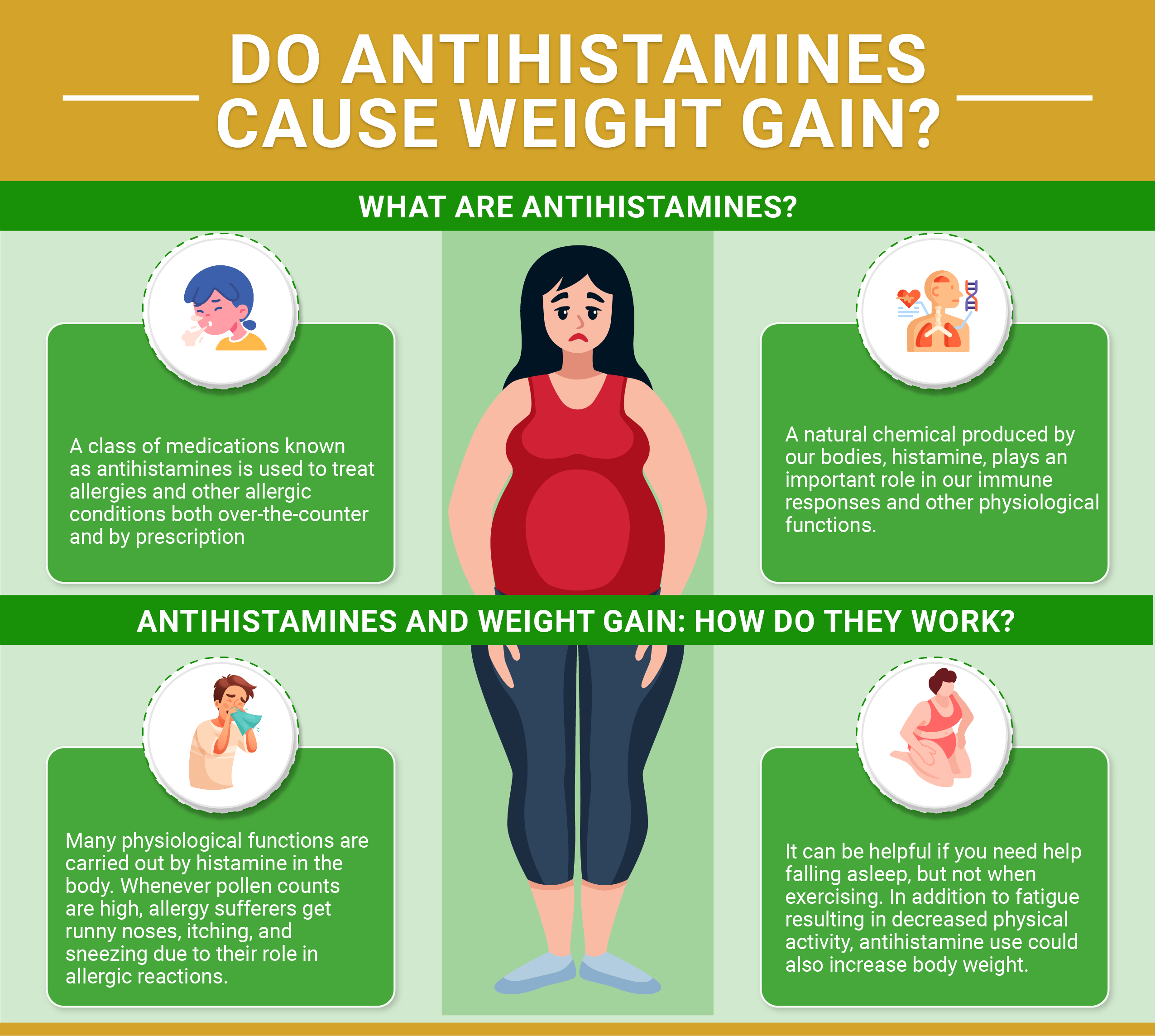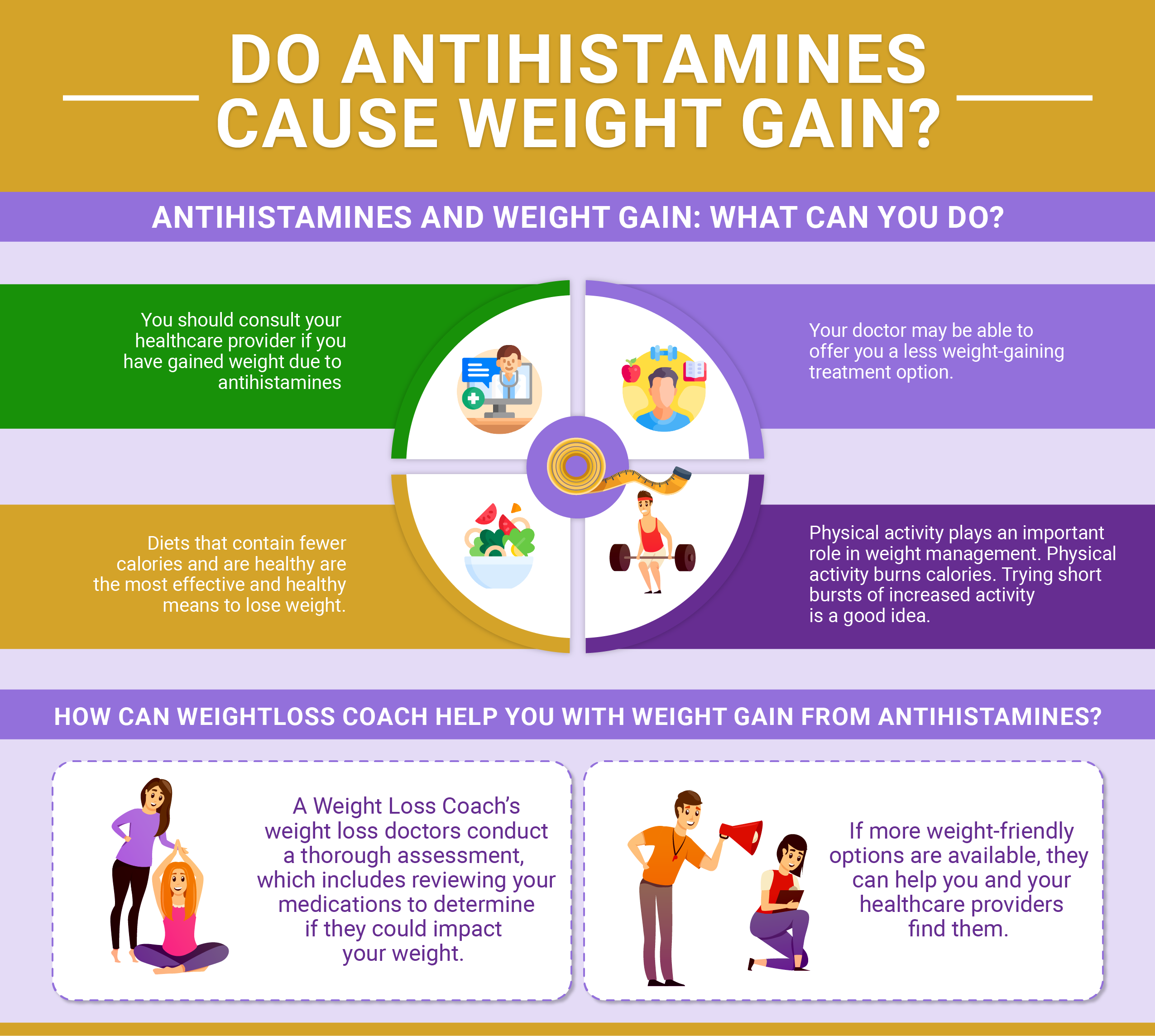There is no doubt that weight gain due to medications is not uncommon, and it is often overlooked by those looking to lose weight or gain weight. An antihistamine is one of the types of medications that have been linked to weight gain as a side effect. Antihistamines are one of the most effective treatments for allergies, according to the Centers for Disease Control and Prevention, and allergies are one of the most common reasons for annual medical visits. Aside from treating allergic conditions like asthma and hives, these supplements are also commonly used to treat anxiety, insomnia, and other allergic conditions. The important thing to know is whether antihistamines cause weight gain if you take them daily to get through allergy season or if they are taken occasionally when you have trouble sleeping. In that case, what can you do to ensure this does not happen in the future?
A class of medications known as antihistamines is used to treat allergies and other allergic conditions both over-the-counter and by prescription. Also, they are often found in r cold medications as well as sleep aids that are sold over the counter. A natural chemical produced by our bodies, histamine, plays an important role in our immune responses and other physiological functions, which is why antihistamines work by blocking its effects. In addition to diphenhydramine (BenadrylⓇ, ZzzQuilⓇ), loratadine (ClaritinⓇ), fexofenadine (AllegraⓇ), cetirizine (ZyrtecⓇ), and levocetirizine (XyzalⓇ), other common antihistamines include diphenhydramine (BenadrylⓇ, ZzzQuilⓇ). A prescription-only antihistamine called Hydroxyzine (VistarilⓇ) treats anxiety, insomnia, and other allergies-related symptoms.

Although the connection between antihistamine use and weight gain is not entirely clear, research suggests that there may be one. Children and adults have both experienced this. In addition, understanding histamine's role in the body may help us to understand how antihistamines cause weight gain.
Many physiological functions are carried out by histamine in the body. Whenever pollen counts are high, allergy sufferers get runny noses, itching, and sneezing due to their role in allergic reactions. In humans, histamine may also control appetite and metabolism. The release of histamine has been shown to cause a reduction of food intake in response to the release of this chemical, suggesting that it can help us feel full or signal that we should stop eating in response to its release. Taking antihistamines could block this effect, leading to an increase in food intake and an increased risk of weight gain.
There is also a sedative effect associated with antihistamines. It can be helpful if you need help falling asleep, but not when exercising. In addition to fatigue resulting in decreased physical activity, antihistamine use could also increase body weight. More research is needed to understand how antihistamines can affect weight and the underlying causes.
You should consult your healthcare provider if you have gained weight due to antihistamines or are worried about this prospective side effect. Your doctor may be able to offer you a less weight-gaining treatment option.

Medication-induced weight gain can also be countered by implementing multiple weight management strategies.
Weight gain and difficulty losing weight may be caused or made worse by many medications. As an example, antihistamines are available. A Weight Loss Coach’s weight loss doctors conduct a thorough assessment, which includes reviewing your medications to determine if they could impact your weight. If more weight-friendly options are available, they can help you and your healthcare providers find them.

Comments